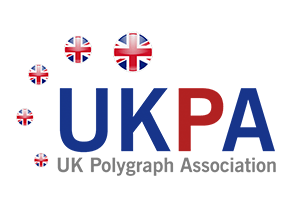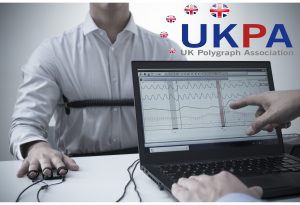How Can I Train to be a a Polygraph Examiner?
Are you considering a career in polygraph examination? Are you passionate about crime investigation and the criminal justice system, but don’t know where to start? This post will provide an overview of what is involved in becoming a certified polygraph examiner. We’ll discuss the necessary qualifications to gain employment as a polygraph analyst, the basics of the job itself, and outline some suggestions for how you can get started on your journey. Whether it’s just curious interest or serious career aspiration, this guide has something for everyone looking into this rewarding field. Read on to learn more!
Understand the basic principles of polygraphy
Polygraphy, or more commonly known as lie detection, is a fascinating field of study that has gained popularity over the years. It involves measuring various physiological responses that occur in a person when they tell a lie, such as changes in heart rate and blood pressure. However, it is important to note that polygraphy is not infallible and should not be used as the sole basis for determining guilt or innocence. Understanding the basic principles of polygraphy can help us appreciate the complexities of human behaviour and the science behind detecting deception. Whether you are interested in pursuing a career in law enforcement or simply fascinated by psychology, learning about polygraphy is a worthwhile endeavour.
Learn how to prepare and conduct a polygraph test
Polygraph tests have become increasingly popular in recent years, and learning how to prepare and conduct one can give you a valuable skillset. It’s a complex process that requires careful attention to detail, as the results of the test can have significant consequences. The first step in preparation is to gather all necessary information about the subject and the case at hand, as this will help you craft targeted questions. Once the questions are formulated, it’s critical to create a comfortable and professional environment conducive to the test. Conducting the actual test involves measuring physical responses to the questions asked, and interpreting the results. With patience and practice, mastering polygraph testing can make a meaningful difference in investigative and legal proceedings.
Become familiar with the equipment used in a polygraph examination
If you’ve ever watched crime dramas or police procedurals, you’re likely familiar with what a polygraph exam entails. But have you ever wondered what kind of equipment is used to carry out this notoriously accurate lie detector test? Understanding the tools of the trade can make the process seem less intimidating, and can give you an appreciation for the complex technology involved. From the pneumographs that measure a test subject’s breathing patterns to the electrodes that pick up on their physiological responses, each element of the polygraph exam plays a specific role in gathering information about whether or not a person is telling the truth. By becoming familiar with the equipment used in a polygraph exam, you can better understand the science behind this powerful tool of investigation.
Develop your interviewing skills and techniques
A successful job interview is not just about delivering a great resume, it’s also about having the right interviewing skills and techniques. Developing these skills can be the difference between landing your dream job or not getting the call back. It begins with doing proper research about the company you’re interviewing with and preparing answers to commonly asked questions. But it doesn’t stop there. To truly stand out, you need to be confident, articulate, and be able to communicate your strengths effectively. You also need to be able to actively listen and respond to your interviewer’s questions thoughtfully. Whether you’re interviewing for your first job or trying to advance your career, honing your interview skills can help you make a lasting impression and land that job you’ve been dreaming of.
Obtain training from a reputable agency or institution
If you’re looking to obtain training in a particular field, it’s important to ensure that you do so from a reputable agency or institution. Not only will this give you the knowledge and skills you need to succeed, but it will also give you credibility in your chosen industry. There are a lot of companies out there that offer training services, so it’s important to do your research beforehand and make an informed decision. Look for reviews and testimonials from others who have completed the training, and don’t be afraid to ask for references. By taking the time to find a reputable agency or institution, you’ll be setting yourself up for success in your career.
Take an accredited course on polygraphy and learn the latest methods and advancements in the field
If you’re interested in pursuing a career in polygraphy, it’s essential to take an accredited course to stay up-to-date with the latest advancements in the field. Polygraph exams are used in a variety of settings, from criminal investigations to pre-employment screenings, and being familiar with the newest methods can give you an edge as a polygraph examiner. Completing a course in polygraphy can also provide you with the necessary skills and knowledge to operate the equipment and analyse results accurately. So, why not take the opportunity to learn from the experts and take an accredited course on polygraphy?
Demonstrate your knowledge by completing an exam given by a professional examiner
Completing an exam given by a professional examiner is a great opportunity to showcase your knowledge. It requires a lot of preparation, but once you have put in the time and effort, you can feel confident in your abilities. Not only does passing the exam demonstrate your understanding of the topic, but it also reflects positively on your dedication to self-improvement. Whether you are pursuing a certification, a promotion, or simply looking to expand your knowledge, taking an exam is an excellent way to challenge yourself and prove your capabilities. So don’t be afraid to take that next step and show the world what you’re made of!
Practice with sample tests before starting as an examiner
Preparation is key when it comes to any new task, and becoming an examiner is no exception. One of the best ways to prepare is by practicing with sample tests. By doing so, you’ll gain a better understanding of what to look for, what questions might be asked, and how to best evaluate responses. While it can be tempting to jump right in, taking the time to practice beforehand will make all the difference when it comes time to administer real exams. Plus, it will help you be more confident in your abilities and make the process smoother for both you and the test-takers. So if you’re getting ready to become an examiner, make sure to give yourself plenty of time to practice with sample tests before starting.
Maintain continuing education courses to stay up to date on changes in the industry
In today’s fast-paced and dynamic work environment, it’s incredibly important to stay up to date with the latest industry developments. This is especially true in fields that are rapidly evolving or subject to regulatory changes. One way to ensure that you are equipped with the knowledge and skills you need to succeed is by taking continuing education courses. These courses provide an opportunity to learn latest trends, practices, and technologies that can help you stay ahead of the curve. By completing these courses, you’ll be better able to serve your clients or customers and get ahead in your career. So make sure to invest in yourself by signing up for continuing education today!
Obtain certification through a recognized organization or board of examiners
Achieving certification through a recognized organization or board of examiners can greatly enhance your professional career. It demonstrates your commitment to ongoing education and your confidence in your skills and knowledge. Certification is a formal recognition of your expertise in a particular field, and can give you a competitive edge when seeking employment or advancing within your current organization. Additionally, it provides you with access to a network of like-minded professionals and resources to further develop your skills. Whether you are looking to start a new career or improve upon your current one, obtaining certification can open up new doors and opportunities.
By learning the principles of polygraphy and honing your skills with training and practice, you are building the foundation for a rewarding and successful career in this growing field. For those looking to get involved, be sure to look into obtaining certification through reputable organizations or boards that can vouch for your knowledge and experience. Moreover, maintaining continuing education will help you stay up-to-date on the latest advancements in polygraphy. Put in the effort to learn the basics now and you’ll be one step closer to becoming an accomplished examiner one day. Good luck!







